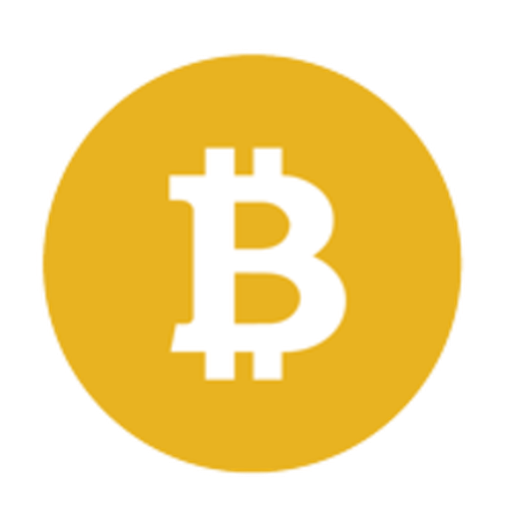Solana vs Bitcoin SV – Price, Market Cap & Performance Compared
Which coin performs better – Solana or Bitcoin SV?
We compare the current price (211.95 $ vs 24.36 $), market cap (115 139 188 576 vs 485 081 251) and all-time high (293.31 vs 489.75).
Find out which one stands out right now!
Solana is currently trading at 211.95 $, while Bitcoin SV stands at 24.36 $. These cryptocurrencies differ not only in price but also in market presence.
The market cap of Solana is around 115 139 188 576, and Bitcoin SV has about 485 081 251. Their respective all-time highs are 293.31 for Solana and 489.75 for Bitcoin SV.
Daily trading volume and the 24h price change (-1.06296 % vs -0.55772 %) also offer key insights.
Compare all metrics now and see which coin fits your investment strategy best!
Solana
Solana is an advanced blockchain platform that has quickly gained traction due to its high-speed and low-cost transactions. Its architecture is designed to handle thousands of transactions per second, which positions it as a strong competitor in the decentralized finance space. As developers continue to build on its network, Solana is poised to support a diverse range of applications, making it a significant player in the cryptocurrency ecosystem.
more informationBitcoin SV
Bitcoin SV, short for Bitcoin Satoshi Vision, aims to fulfill the original vision of Bitcoin as outlined in Satoshi Nakamoto's whitepaper. Emphasizing stability and scalability, Bitcoin SV seeks to provide a robust infrastructure for both enterprises and developers, allowing for extensive blockchain applications and larger block sizes than its predecessors. The project strives to distinguish itself through its commitment to regulatory compliance and continuous innovation in the blockchain space.
more information

|

|
|
|
|
General Information |
|
|---|---|
|
Title
Solana
|
Title
Bitcoin SV
|
|
Symbol
sol
|
Symbol
bsv
|
|
Whitepaper
-
|
Whitepaper
-
|
|
Website
|
Website
|
|
Community
-
|
Community
-
|
|
Last Updated
2025-09-24 23:29
|
Last Updated
2025-09-24 23:29
|
Price Data |
|
|---|---|
|
Current Price $
211.95 $
|
Current Price $
24.36 $
|
|
High 24h
216.29 $
|
High 24h
24.74 $
|
|
Low 24h
206.33 $
|
Low 24h
24.21 $
|
|
Price Change 24h
-2.27718 $
|
Price Change 24h
-0.13661 $
|
|
Price Change % 24h
-1.06296 %
|
Price Change % 24h
-0.55772 %
|
Market Data |
|
|---|---|
|
Market Cap
115 139 188 576
|
Market Cap
485 081 251
|
|
Total Volume
8 426 373 441
|
Total Volume
11 511 771
|
|
Market Cap Change 24h
-1 726 644 361
|
Market Cap Change 24h
-3 437 442
|
|
Market Cap Change % 24h
-1.47746 %
|
Market Cap Change % 24h
-0.70365 %
|
|
Return on Investment (ROI)
-
|
Return on Investment (ROI)
-
|
Supply and Availability |
|
|---|---|
|
Circulating Supply
543 390 185
|
Circulating Supply
19 924 503
|
|
Total Supply
610 459 596
|
Total Supply
19 924 503
|
|
Max Supply
-
|
Max Supply
21 000 000
|
Historical Data |
|
|---|---|
|
All Time High (ATH)
293.31
|
All Time High (ATH)
489.75
|
|
ATH Change %
-27.78745 %
|
ATH Change %
-95.02151 %
|
|
ATH Date
2025-01-19 11:15
|
ATH Date
2021-04-16 17:09
|
|
All Time Low (ATL)
0.50080
|
All Time Low (ATL)
21.43
|
|
ATL Change %
42 194 %
|
ATL Change %
13.7504 %
|
|
ATL Date
2020-05-11 19:35
|
ATL Date
2023-06-10 04:32
|
Solana
The Rise of Solana: A Deep Dive into the Blockchain Superstar
Solana (SOL) has emerged as one of the most prominent blockchain platforms in recent years, showcasing impressive growth and technological advancements. Known for its high-speed transactions and low fees, Solana has become a favorite among developers and investors alike. This article aims to explore the unique features of Solana, its historical performance, as well as its future prospects.
Key Features Setting Solana Apart
Solana's key selling point is its ability to process transactions at lightning speed compared to other blockchains. It utilizes a unique consensus mechanism known as Proof of History (PoH), which enables the network to handle thousands of transactions per second (TPS), a feat unmatched by many other blockchains. This innovation allows for scalability without compromising on speed or cost, making Solana an attractive option for decentralized applications (DApps) and decentralized finance (DeFi) projects. Additionally, the low fee structure further enhances its appeal in the crypto space.
Advantages of Solana
One of the main advantages of Solana is its scalability. As the demand for blockchain technology grows, the need for scalable solutions becomes more critical. Solana's architecture allows for rapid scaling, positioning it as a robust platform for future expansion. Furthermore, Solana boasts an active developer community that continuously contributes to its ecosystem, resulting in a diverse range of applications and services being built on the network. The high throughput and low transaction costs make it an ideal environment for developers, encouraging innovation across various sectors.
Challenges and Criticisms
No technology comes without its set of challenges, and Solana is no exception. One of the criticism often aimed at Solana is its level of decentralization. Critics argue that the network's reliance on a limited set of validators potentially undermines its decentralized ethos. Additionally, like other emerging technologies, Solana faced network outages in the past, raising concerns about its reliability and stability during high-stress periods of network activity.
A Look Back: Solana's Historical Performance
Solana's journey began in 2020 when it was introduced to the crypto world. Its price hit an all-time low (ATL) of $0.500801 in May 2020. The blockchain quickly garnered attention, and by November 2021, it reached an all-time high (ATH) of $259.96. Solana's price movements during these years reflect the broader market sentiment and growing interest in scalable blockchain solutions. Despite experiencing significant market volatility, including a notable price correction from its ATH, Solana has maintained a strong market presence.
Future Prospects of Solana
As we look to the future, Solana's prospects seem promising. Its growing ecosystem, coupled with continuous technological improvements, positions it well to capture a significant share of the blockchain market. The platform's focus on scalability and efficiency will likely drive more developers and projects to choose Solana as their preferred blockchain network. Furthermore, ongoing partnerships and integrations suggest a positive trajectory for Solana, allowing it to compete with other major blockchains in the years to come.
In conclusion, Solana represents a significant development in the crypto landscape, distinguished by its speed, scalability, and low-cost transactions. While the network faces inherent challenges that accompany any young and rapidly growing technology, the potential for innovation and adoption remains substantial. As Solana continues to evolve, it will undoubtedly be a crypto story worth following closely.
Bitcoin SV
Understanding Bitcoin SV: A Comprehensive Overview
Bitcoin SV (BSV) emerged as a major player in the cryptocurrency landscape when it bifurcated from Bitcoin Cash (BCH) in November 2018. This hard fork was driven by a fundamental disagreement within the Bitcoin Cash community regarding the direction of the coin's scalability and development. The resulting split gave birth to Bitcoin SV, which stands for "Satoshi Vision," reflecting its goal of remaining true to what some interpret as the original vision of Bitcoin's creator, Satoshi Nakamoto.
The Pros of Bitcoin SV
One of the primary advantages of Bitcoin SV is its purported scalability. The team behind BSV has focused on increasing the block size significantly, claiming to enable faster transaction speeds and lower fees for users. As of the latest updates, BSV boasts some of the largest block sizes in the Bitcoin family, achieving over 2GB blocks in stress tests. This capacity potentially makes BSV a suitable candidate for large-scale enterprise applications and industries with heavy transaction demands.
Another significant benefit is BSV's commitment to stability and regulatory compliance. The BSV community prioritizes a stable protocol, seeking to minimize unnecessary changes and disruptions. This makes BSV appealing to enterprises that require a reliable foundation for building applications. Additionally, Bitcoin SV proponents often emphasize the importance of working within regulatory frameworks, which could aid in broader adoption in traditional financial environments.
The Cons of Bitcoin SV
Despite its potential advantages, Bitcoin SV faces several challenges and criticisms. First and foremost is its controversial origin, born from a contentious fork of Bitcoin Cash. This has led to fragmented communities and divided opinions among crypto enthusiasts. Moreover, the approach of increasing block sizes to solve scalability issues does not come without downsides. Critics argue that larger blocks can lead to centralization, as fewer miners may be able to afford the necessary resources to process these large transactions.
Furthermore, Bitcoin SV has faced skepticism regarding its overall market position. Its significantly lower market capitalization and liquidity compared to giants like Bitcoin and Ethereum could pose challenges for widespread adoption. As of recent data, Bitcoin SV is trading at $47.37, down significantly from its all-time high of $489.75 in April 2021. This performance could raise questions about its long-term viability as a competitive player in the crypto space.
Historical Performance and Development
Since its inception, Bitcoin SV has experienced a roller coaster of price fluctuations and market uncertainty. After its initial introduction in 2018, BSV quickly climbed to establish itself among the top cryptocurrencies by market cap. The all-time high of $489.75 was reached in April 2021 during a broader crypto market rally. Since then, BSV has lost substantial value, marked by a significant decrease of over 90% from its peak.
Despite these challenges, BSV continues to forge a path as a blockchain ecosystem focused on usability and real-world applications. Significant collaborations and projects are continually being developed to harness its scalable technology, aiming to meet the demands of various industries.
Future Prospects for Bitcoin SV
Looking forward, the future of Bitcoin SV will likely depend on its ability to drive real-world utility and adoption. If BSV can successfully implement its vision of a scalable and enterprise-focused blockchain, it could attract more businesses seeking reliable and secure transaction processing solutions. However, achieving this goal requires overcoming technical hurdles and forging new partnerships that leverage its purported strengths.
The continued development of applications on the BSV blockchain, coupled with potential regulatory developments favorable to its approach, could potentially shape a more promising outlook. Nevertheless, the cryptocurrency landscape remains highly competitive and dynamic, with the ongoing evolution of existing and emerging players. Bitcoin SV's ability to adapt will be crucial in determining its place in the broader crypto ecosystem.

